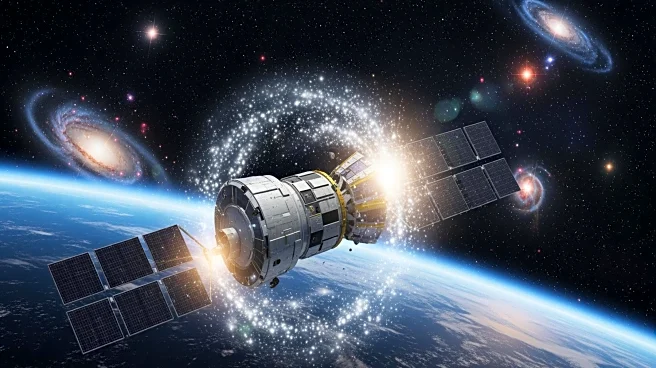What's Happening?
China has reached out to NASA to inform them about a potential collision between their satellites, marking a significant development in international space cooperation. This is the first time the Chinese
National Space Agency has proactively communicated such a maneuver to NASA, indicating an increase in China's situational awareness in space. Alvin Drew, director for NASA Space Sustainability, noted that previously, NASA would alert China about possible conjunctions, but the roles have reversed. This communication underscores the growing issue of space debris, which has become a major concern due to the increasing number of satellites in orbit. China has been rapidly advancing its space ambitions, including plans to land on the Moon and retrieve samples from Mars, and is now actively addressing the challenges posed by space junk.
Why It's Important?
The proactive communication from China to NASA about a potential satellite collision is a significant step in international space collaboration, highlighting the importance of managing space debris. As the number of satellites in orbit continues to grow, the risk of collisions increases, which can lead to more space debris and potential damage to operational satellites. This development emphasizes the need for effective communication and coordination between countries to prevent catastrophic events in space. China's initiative to address space debris also reflects its commitment to sustainable space exploration, which is crucial for the long-term viability of space activities. The collaboration between major space agencies like NASA and the Chinese National Space Agency could pave the way for more comprehensive strategies to tackle space debris and enhance global space safety.
What's Next?
The communication between China and NASA regarding satellite collision avoidance may lead to more formalized protocols for international cooperation in space traffic management. As space debris continues to pose a threat to satellites and other space assets, countries may need to establish joint efforts to monitor and mitigate these risks. This could involve developing shared technologies and systems for tracking space debris and coordinating maneuvers to prevent collisions. Additionally, the focus on space sustainability may drive further investments in technologies designed to remove or reduce space debris, potentially leading to new industry standards and international agreements.
Beyond the Headlines
The issue of space debris not only affects satellite operations but also raises ethical and legal questions about the responsibility of countries and companies in maintaining a clean and safe space environment. As more entities enter the space domain, the need for clear regulations and accountability becomes crucial. This development could prompt discussions on the legal frameworks governing space activities and the ethical implications of space exploration, including the preservation of space for future generations.










